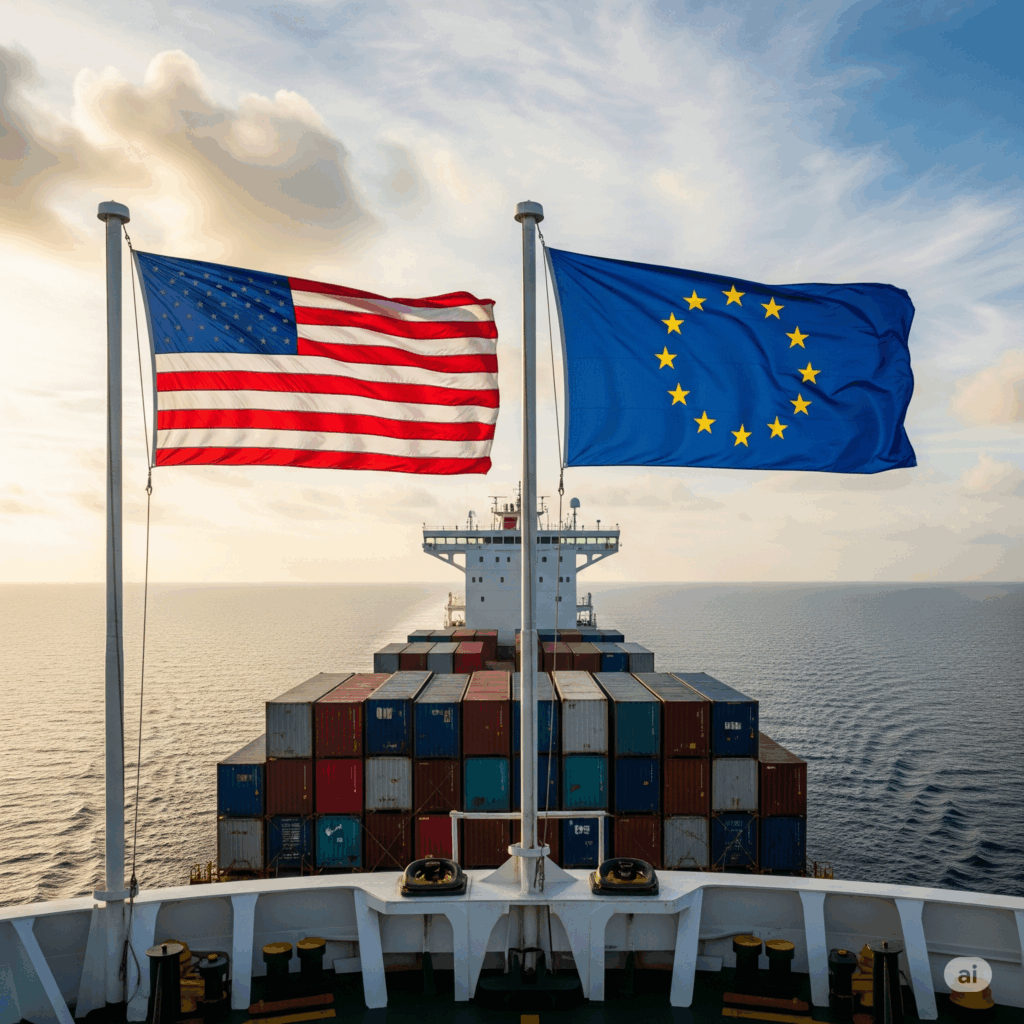
In a significant development for transatlantic commerce, the United States and the European Union have announced a new Framework on an Agreement on Reciprocal, Fair, and Balanced Trade. This agreement marks a pivotal first step towards reducing trade barriers, enhancing market access, and strengthening the economic relationship between two of the world’s largest markets.
For businesses engaged in U.S.-EU trade, this framework signals significant shifts in tariff structures, customs regulations, and supply chain strategy.
Below, we break down the core components of the agreement and offer our analysis on its impact.
Expanded Market Access: EU to Eliminate Tariffs on U.S. Goods
A major win for U.S. exporters, the EU has committed to significant tariff reductions. This will create new opportunities and improve the cost-competitiveness of American products in the European market.
Key changes include:
- Elimination of Tariffs: The EU will eliminate all tariffs on U.S. industrial goods.
- Preferential Access for Agriculture & Seafood: A wide range of U.S. products will gain preferential market access, including:
- Tree nuts, dairy products, and fresh/processed fruits and vegetables
- Processed foods and planting seeds
- Soybean oil, pork, and bison meat
- Lobster Tariffs: The previous U.S.-EU agreement on lobster tariffs, which expired on July 31, 2025, will be immediately extended and expanded to include processed lobster products.
Reciprocal Measures: Understanding New U.S. Tariff Applications
In return, the United States will adjust its tariff applications for goods originating from the EU. Importers must pay close attention to these new calculations.
- New Tariff Calculation: The U.S. will apply the higher of either the standard Most Favored Nation (MFN) tariff rate or a new combined rate of 15% (comprised of the MFN tariff and a new reciprocal tariff).
- MFN-Only Exemptions: Effective September 1, 2025, certain strategic products from the EU will only be subject to the standard MFN tariff, including:
- Unavailable natural resources (e.g., cork)
- All aircraft and aircraft parts
- Generic pharmaceuticals, their ingredients, and chemical precursors
Impact on Key Sectors: Adjustments to Section 232 Tariffs
The framework directly addresses the contentious Section 232 tariffs, aiming to reduce their impact on EU goods.
- Pharmaceuticals, Semiconductors & Lumber: The combined tariff rate (MFN + Section 232) applied to these EU goods will not exceed 15%.
- Automobiles & Auto Parts: Upon formal introduction of the EU’s tariff reductions, the U.S. will significantly reduce Section 232 tariffs on EU vehicles and parts.
- If the MFN rate is 15% or higher, no additional Section 232 tariff will apply.
- If the MFN rate is below 15%, a combined rate of 15% will be applied.
- Steel & Aluminum: The U.S. and EU will explore solutions like tariff-rate quotas (TRQs) to protect domestic markets from overcapacity while ensuring secure supply chains between them.
Strengthening Supply Chains and Economic Security
Beyond tariffs, the agreement aims to align the U.S. and EU on broader economic security issues. This includes cooperative actions to enhance supply chain resilience, address non-market policies from third-party countries, and combat duty evasion. This collaboration on investment reviews and export controls signals a more unified approach to global trade challenges.
How Gava Can Help You Navigate These Changes
This new trade framework presents both opportunities for savings and new layers of complexity. Proactive planning is essential to leverage the benefits and ensure full compliance.
As your dedicated logistics and customs partner, Gava International is here to help you:
- Analyze Your Tariff Exposure: We can review your product classifications to determine how these new tariff structures will impact your landed costs.
- Ensure Compliance: Our customs brokerage experts can guide you through the updated documentation and entry requirements to avoid costly delays and penalties.
- Optimize Your Supply Chain: We can help you strategically adapt your logistics network to capitalize on new market access opportunities.
The landscape of international trade is constantly evolving. Staying informed and partnered with an expert is key to success.